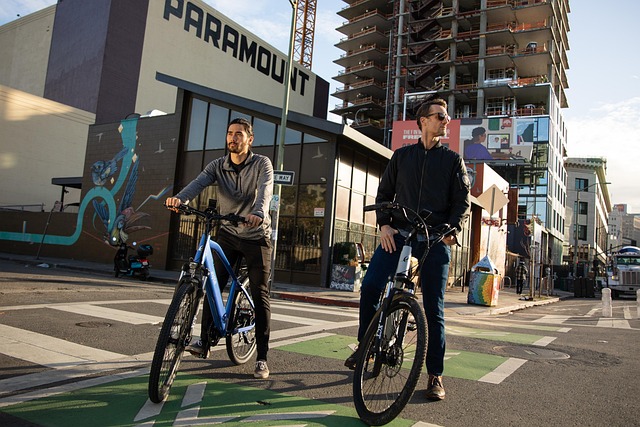Student accommodations prioritizing sustainable practices offer both environmental and economic benefits. From energy-efficient appliances to larger initiatives like solar panels, these options reduce carbon footprints and lower utility bills. Simple changes like LED light bulbs, composting, and eco-friendly transportation options contribute to a greener future while saving money. Students can further promote sustainability by adopting low-waste lifestyles, using biodegradable materials, and opting for secondhand goods, creating affordable and eco-conscious living spaces.
“Embrace sustainability in your student life with these eco-friendly tips! Discover how to make an environmentally conscious choice when selecting accommodation, offering a guide to finding energy-efficient spaces. Learn simple yet effective methods to save energy and reduce waste, tailored for students.
Explore green transport options and unlock the secrets to an eco-conscious lifestyle through sustainable decorating ideas. Let’s empower students to adopt and promote sustainable practices, making your college years both academically enriching and planet-friendly.”
- Choosing Eco-Conscious Student Accommodation
- Energy Saving Tips for Students
- Reducing Waste: A Student's Guide
- Sustainable Transport Options for College Students
- Eco-Friendly Decorating and Lifestyle Choices
Choosing Eco-Conscious Student Accommodation

When looking for student accommodation, prioritizing eco-conscious options can be a game-changer for both your wallet and the planet. Many student rentals now embrace sustainable practices, from energy-efficient appliances to recycling programs. Opting for these green options not only reduces your carbon footprint but also saves money in the long run by lowering utility bills.
Beyond individual units, consider residences that prioritize larger-scale sustainability efforts, such as solar panels or green roofing. These properties demonstrate a commitment to eco-friendly living and often foster a community of like-minded individuals eager to reduce their environmental impact. With these options, students can actively contribute to a healthier planet while enjoying a comfortable and modern living space.
Energy Saving Tips for Students

Energy-saving tips are essential for students looking to adopt sustainable practices in their rentals. A simple change like switching to LED light bulbs can significantly reduce energy consumption and lower utility bills. These long-lasting bulbs use less electricity, which is not only cost-effective but also environmentally friendly. Students should also take advantage of natural lighting during the day by opening curtains or blinds, reducing the need for artificial illumination.
Additionally, setting timers for appliances like heaters, air conditioners, and water heaters can prevent energy wastage. Unplugging devices when not in use, such as laptops or charging ports, is another effective strategy to conserve energy. Students can also consider using smart power strips that automatically cut off power to electronics when they’re idle, contributing to a more eco-conscious lifestyle.
Reducing Waste: A Student's Guide

Reducing waste is a crucial aspect of adopting sustainable practices as a student. It’s an easy and effective way to contribute to a greener environment while also saving money. A simple start could be switching from single-use plastic bottles to reusable ones, which significantly cuts down on plastic waste. Students can also embrace composting by setting up small bins in their kitchens to recycle food scraps instead of throwing them away. This practice reduces the amount of waste sent to landfills and contributes to a more sustainable circular economy.
Another effective strategy is to adopt a zero-waste lifestyle by bringing your own reusable shopping bags when heading to the grocery store or campus shops. Opting for second-hand items, especially furniture and clothing, is another excellent way to reduce consumption and waste. Many universities now have online platforms where students can buy and sell pre-loved items, fostering a more sustainable community within the student body. By implementing these simple changes, students can make a positive impact on their local environment while also developing valuable habits for a greener future.
Sustainable Transport Options for College Students

College students often juggle a tight budget and a desire to reduce their environmental impact. Sustainable transport options offer an excellent way to do both. Instead of relying solely on personal vehicles or public transportation, students can explore eco-friendly alternatives like biking, walking, carpooling, or using ride-sharing services. Many universities now have dedicated bike lanes and sharing programs, making it easier than ever to choose a greener commute.
Incorporating sustainable practices into daily life starts with how students travel. For instance, choosing to walk or bike to class not only reduces carbon emissions but also promotes physical activity. Carpooling with roommates or classmates minimizes traffic congestion and cuts down on fuel costs. Utilizing ride-sharing apps or public transit further reduces individual environmental footprints. These simple changes contribute to a more sustainable future for both students and the broader community.
Eco-Friendly Decorating and Lifestyle Choices

Students can make their rental spaces more eco-friendly with simple, thoughtful decorating choices and lifestyle adjustments. Opting for natural, biodegradable materials like bamboo or recycled fabrics reduces environmental impact. Reusing and repurposing existing furniture not only saves money but also cuts down on demand for new resources. DIY projects, such as making your own cleaning supplies using natural ingredients, are cost-effective and reduce exposure to harsh chemicals.
Adopting sustainable practices extends beyond aesthetics; it involves embracing a low-waste lifestyle. Installing energy-efficient light bulbs and appliances can significantly lower utility costs. Encouraging roommates to share responsibilities for tasks like recycling and composting creates a more eco-conscious household. Moreover, choosing secondhand goods for decor and accessories helps extend the lifespan of products, reducing waste generated from new production.






